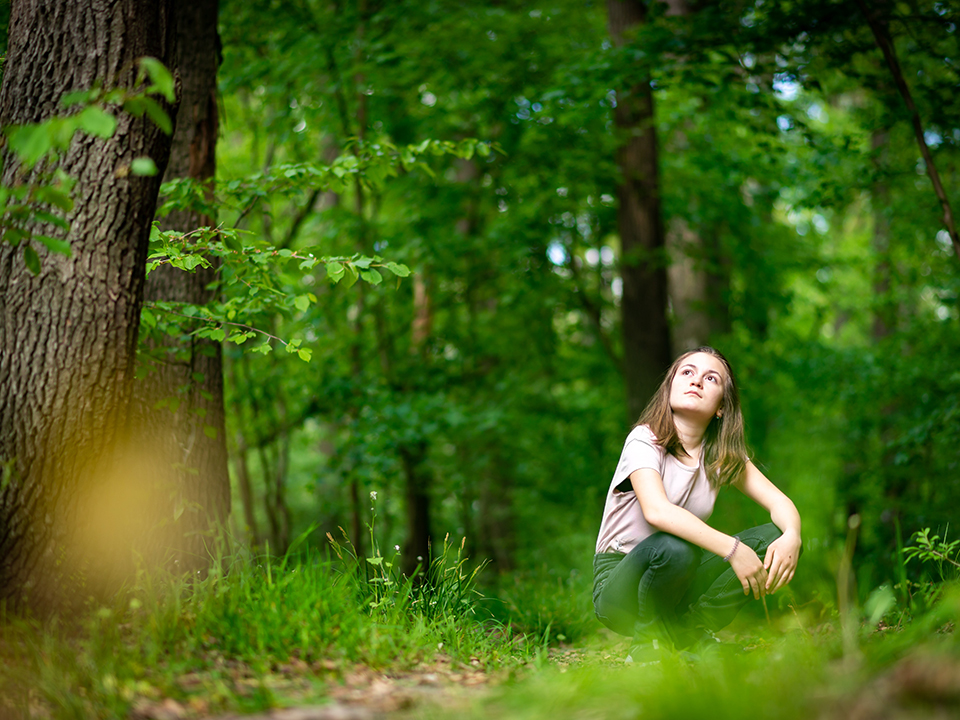
Junior Class
(ages 7-9)
Senior Class
(ages 10-12)
Wednesdays from 10:30 am – 3:00 pm
Year-Long Class, 6-Week Break in December/January
Location: Various Davis County locations, drop-off and pick-up at our Layton location
Fee for Full Year: $825
The 2024-25 Nature program is full. Click above to be added to the waitlist.
“The natural world is one of the most complex environments a young child will ever navigate.”
–Mary Beth Hilborn
That complex environment creates natural contexts for problem-solving, critical thinking, curiosity, creativity, and more! How better to learn about the real world than actually in the real world?
Nature schools the world over have shown the unique power of nature as an environment where students thrive mentally, physically, and socially. Studies have shown that even academic performance increases when spending more time in nature. Spending time in nature has numerous health, both physical and emotional. In our nature, students will develop the following skills:
Observation and curiosity,
the foundation of inquiry
Playfulness and adaptability,
the foundation of creativity
Persistence and passion,
the foundation of grit
Wonder and gratitude,
the foundation of responsibility
“We were all meant to be naturalists, each in his degree, and it is inexcusable to live in a world so full of the marvels of plant and animal life and to care for none of these things.”
–Charlotte Mason
The 2024-25 Nature program is full. Click above to be added to the waitlist.
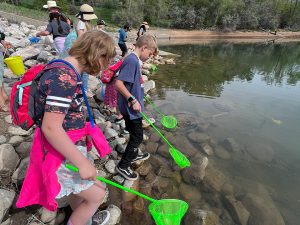
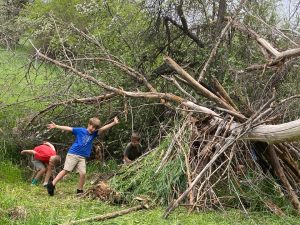
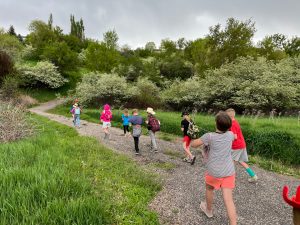
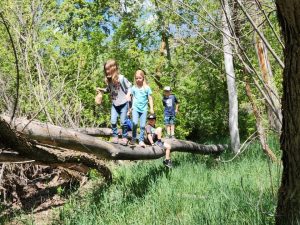
Our nature program focuses on the subjects of science, language arts, and art in a natural and integrated way. What do integrated subjects look like in an outdoor nature program?
The details vary from location to location and from student to student, but here are some examples of how we start grounded in a location/environment and then incorporate different subjects along the way:
Students will follow in the steps of great naturalists the world over in: honing their observation skills, recording their observations, learning the pillars of scientific inquiry and the scientific method as they experience and explore their environments. Rather than being told how systems work, they will observe, deduce, and experience systems at work. Our learning will be shaped by our environment whether it is studying wetland ecology and animals, river systems and the water cycle, or mountains and geology. They will have the opportunity to learn the landscape through the seasons. Students will keep science notebooks, nature journals, and field notes.
As Van Gogh said, “Art is but imitation of nature.” Students will:
• Study nature as their inspiration for their art as well as a vehicle to train the eye to see the world in a deeper way.
• Make regular studies in their nature journals as we explore different locations.
• Spend time learning age-appropriate art techniques in watercolor to better represent the sky or the water.
• Zooming in, do larger botanical or biological illustration projects and landscape art, further developing their observation skills and inquiry as they choose what details are important.
• Use nature itself to make art.
Each day will start with a nature-based story, poem, or read aloud appropriate to the location or season to engage students’ minds in a different way. Students will practice listening and speaking during circle time as they plan their activities, discuss their observations, and reflect on the day. Students will use language to express, digest, and report on their experiences through creative writing like poetry and stories as well as writing reports, descriptions, and analysis.
Risk:
Students will get dirty and be subject to the risks of being outside exploring all day. While we will keep the children as safe as needed, we won’t eliminate the risk and challenge essential for learning.
It is important that the child will be able to test themselves in a natural and supportive environment gaining wisdom, self awareness, and self-confidence. Children must be kept safe as needed, not safe as possible.
Bad Weather Days:
Being an outdoor program, we intend to spend it entirely outside. We have found that most “bad weather” is overcome with the right clothing and gear. Your student will need to come prepared! Most of the time Utah has enjoyable weather, and we are not holding class during the coldest of the winter months. We anticipate being able to have great days outside nearly 100% of the time. However, class will be relocated to a building if the weather is extremely difficult or unsafe (lightning) for the children to play and learn.
The 2024-25 Nature program is full. Click above to be added to the waitlist.
